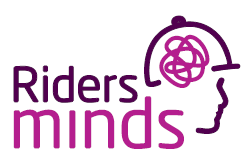
Grief and Loss
Grief is how we react to losing someone or something in our lives. Experiencing a loss, of any kind, can be incredibly tough. Loss is not only about death. It could be about many things such as a partnership, relationship, friendship, lifestyle, ambition, home, dreams, mobility, income, plans, hope, health, or any significant loss such as a job. A loss can also have multi-layered, complex sub losses too.
How grief affects us:
Grief can affect our physical and/or mental health. Of all life’s stresses, mourning can seriously test our natural defence systems. We may experience:
- New conditions developing.
- Intense feelings and emotions like sadness, anger, shock, anxiety, guilt, or denial. These feelings can be overwhelming, making it hard to think about anything else.
- Social difficulties if our reactions and behaviours- eg irritability, short temper, withdrawal – change making it hard to interact with others, and vice versa.
- Physical symptoms such aschest tightness, shortness of breath, headaches, and abdominal distress.
- Sleep disturbances.
- Existing illnesses worsening.
Prolonged grief can increase the risk of developing:
- Mental health conditions such as depression and/or anxiety. PGD – Prolonged Grief Disorder, a diagnosis characterised by severe, persistent and disabling grief, is categorised in the International Classification of Diseases, 11th Edition. (ICD 11).
- Physical illness such as heart disease, high blood pressure, infection vulnerability, compromised immune system, gut illnesses and even some cancers.
Therefore, understanding how serious the effect of grief can be is important.
The grieving process
Whilst there are identified stages of grief, Kubler-Ross cycle states 5, others say 7, understanding that the stages don’t occur in a neat, linear form is also important. They can overlap, repeat, re-occur. Emotions, feelings, thoughts, memories can be triggered at any time, and by anything; sometimes the simplest thing.
There’s no time frame for the grieving process, nor a ‘right or wrong’ way to grieve either. It’s an individual thing and everyone will manage, or cope, with their grief differently.
Let’s be mindful too that, wherever we are in the grieving process, anniversaries, particular events, times of the year can trigger our grief and/or sense of loss.
Grief and loss after death
Our grief, and loss, of loved ones from death is often extremely painful, devastating. There are no words sometimes to express the depth of grief. For others, it may be a release, even a relief, knowing loved ones’ suffering is over. The nature of their passing can intensify our responses too, even confuse. Those bereaved by suicide often have particularly complex feelings.
For equestrians, the death of a horse, pony or donkey can have the same affect. Many quotes exist about the ‘special’ relationship humans have with them, such as:
- There is something about the outside of a horse that is good for the inside of a man. (Winston Churchill)
- A horse/pony is the best thing that can happen to a human. (R.B. Cunningham)
- I never met a horse I couldn’t talk to, but sometimes I’ve met humans who didn’t understand a word I was saying. (Unknown)
- They change lives. They give our young people confidence and self-esteem. They provide peace and tranquillity to troubled souls. They give us hope! (Toni Robinson)
- Horse/ponies are not just animals. They are healers, teachers, and friends. (Ronni Sweet)
- A pony is a childhood dream. A horse is an adulthood treasure. (Rebecca Carroll)
- There is no secret so close as that between rider and horse. (Robert Smith Surtees)
For many this relationship represents far more than that of horse/pony/donkey and rider/owner. It often represents best friend, companion, confidante, secret keeper, best listener, enabler, encourager; freedom, escape, therapy, fun, joy, safety, purpose; dreams, hopes, ambitions, unconditionality. It often gifts us ‘that something’ sometimes humans cannot.
So when they die, the grief and loss can be equally, and sometimes more than losing a human. Managing it can be very difficult. Non horsey people may not understand the depth of feeling, and that can add to the distress. Let’s remember too that grief and loss can also apply when they can no longer do what they used to through injury, illness, getting older etc. or re-homing, retirement or even theft.
10 tips for managing grief and loss
- Acknowledge and talk about emotions rather than deny or repress them. Of course, how much/little and who with, depends on the individual. It’s not about telling everyone everything. It is a private matter. Acknowledging through quiet reflection in our own ‘safe/quiet’ place works for many too. Why? Because repressing emotions can prolong the healing process as it triggers the body to produce greater amounts of stress hormones, long-term overproduction of which depresses the immune system, making the bereaved more vulnerable to infections and provoking flare-ups of pre-existing health problems. Grief simply demonstrates how much the person, or your four-legged friend meant to you, and in many ways is something to embrace and work through rather than fear or ignore.
- Talk about them rather than silence. Yes, a personal choice and also how much/little is shared too. Whilst emotions may be evoked, and we may not want others to see our tears, the physical act of talking can have a physiological healing affect, whereas ‘keeping our emotions in’ can hinder healing.
- Allow yourself time and space to grieve. Cry as much as you want/need to, although avoid spiralling into a place where preoccupation with your grief negatively impacts your state-of-mind, making it increasingly difficult to break out of the grief loop. Do this privately if that works for you.
- Keeping busy is many people’s grief management technique. However be careful to do this as a conscious choice rather than from avoidance. Balance is key.
- Time. Allow the void or space they leave to be. The phrase ‘move on’ is widely used, but ensure that’s at your pace. Embrace memories.Instead of shutting them out/down, allow them to surface, and/or ‘park’ until when/where you’re able to deal with them. If it’s about loss of horse/pony/donkey, avoid immediately filling the void with another. That’s not always the best for you, nor them. They will be themselves, and not a replica of the one you lost.
- Make time for healthy distractions such as family, friends, work and other activities. This will help you manage your grief and maintain a sense of reality and perspective.
- Take care of yourself and that includes seeking support. Grieving can be tiring, so self-care is important. Support may come from family and friends but remember that some people may understand your loss more than others. If they’re not horsey, they may be unable to fully grasp the impact of the loss. Be mindful of anniversaries, events, or particular times of the year when some extra self-care may be required.
- Perhaps keep a grief diary. Writing down your thoughts and emotions around the loss can be therapeutic for some. Keeps it private too. Continue for as long as you need/want. There is no set format or timeline, just whatever you find helps you.
- Think differently. Rather than focus on what you’ve lost, think about how blessed you were to have [x] in your life. Cherish the memories; recognise what you had, even if lost too soon.
- Change perception and celebrate. Remember, you had something in your life that, even if only for a short time, many others would have loved to have had. That applies to the person or animal itself, but perhaps more what they gifted you and/or what they represented.
For example: Someone loses their mum at a young age. They had the most glorious, but short, relationship. But, someone who never experienced that, would love to have experienced that even for that short time.
For our four-legged friends, here’s a slightly tweaked quote from Beryl Reid’s book, The Cats Whiskers:
Their [little] lives are only borrowed, but while we have them with us they give such joy and companionship that the [shortness of the] time they are with us is a price we pay, not gladly, but with understanding and thankfulness for their lives.
Additional support
Whilst Riders Minds helpline is here to support you, if you’re struggling to manage your grief, speak to your doctor. It’s a sign of strength to seek help.
Other specific bereavement resources are available such as :
- Cruse bereavement support
- Samaritans
- The Good Grief Trust is run by the bereaved for the bereaved
For those bereaved by suicide:
- Papyrus suicide bereavement support
- Cruse understanding grief from suicide
- CALM – Campaign Against Living Miserably guide to support after suicide
- The Charlie Waller Trust provides extensive help and support, including links to publications and organisations:
- SOBS – Survivors Of those Bereaved by Suicide
- The Samaritans’ Facing The Future peer support.
- Finding the Words to help support someone who’s been bereaved by suicide
- Grief Encounter for bereaved children and young people
- Suicide Bereavement UK
Support for grieving for our equines:
- British Horse Society, Friends at the End
- Blue Cross, Saying goodbye to your horse.
- Horse and Rider. Losing your horse
To quote our Chair, Victoria Wright,
Grief is like the ocean, it comes in waves. All we can do is learn to swim.
If you need support:
Call our helpline free on 0800 088 2073
Or if you prefer to message then text us on 07480 488 103
To access the live chat click the purple chat button and you will be connected to one of our trained counsellors.




